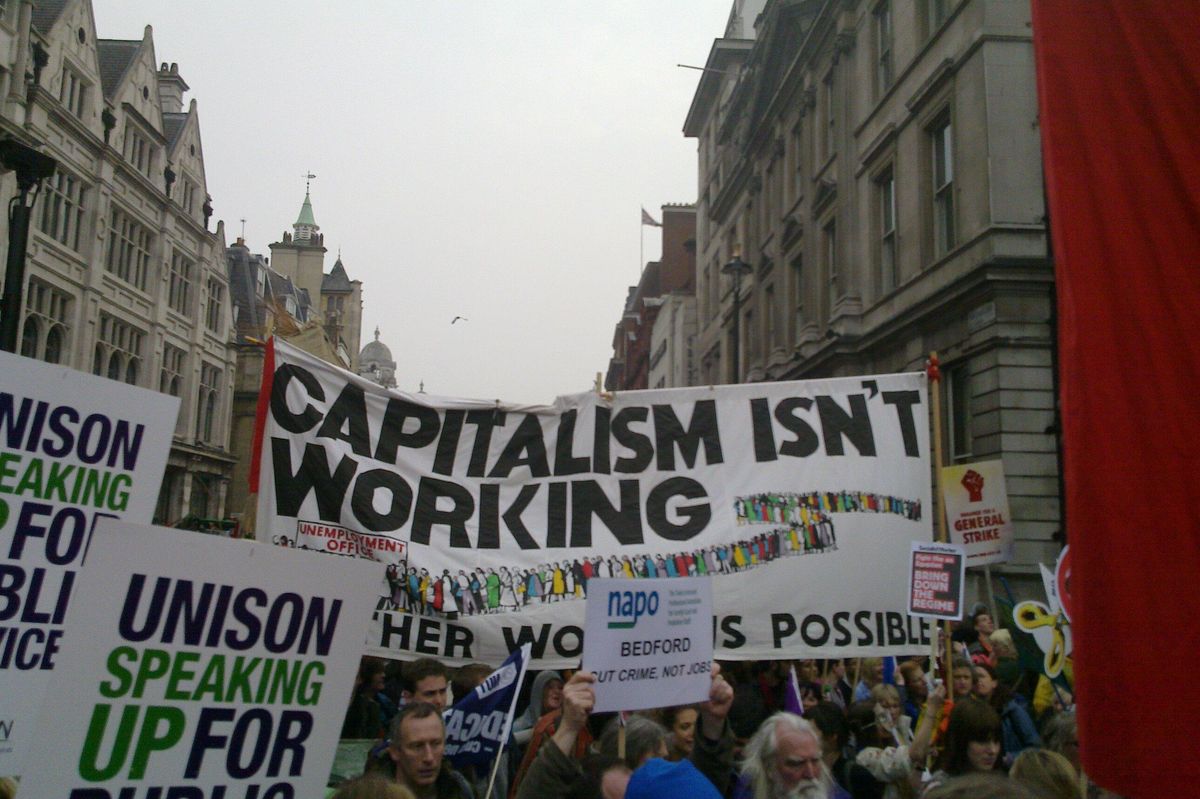Capitalism-Some Rudimentary Ideas About Capitalism
Capitalism-Some Rudimentary Ideas About Capitalism

In a capitalist society, people manage their own businesses and participate in the free market, not the government. It is additionally known as the “free market.” One of the most recent economic and social systems in the world, capitalism was only developed a few hundred years ago.
Those who labour for the capitalist class are referred to as the working class in capitalism, whereas the tiny group of individuals who own and control the economy is referred to as the capitalist class.
More details regarding capitalism
Because capitalism favours a very small group of people—the capitalist class—many people oppose it. As only 25% of Americans accept capitalism, the working class is frequently left to struggle to barely get by.
In contrast to other economic systems, capitalism gives people the freedom to alter the options that are available to them. Although capitalism seeks to give people the freedom to pick their own route in life, people’s ability to choose in a capitalist society is frequently influenced by their socioeconomic status and their choice of occupations. Although the rule of supply and demand governs capitalism, some people contend that greed is the driving force behind the economy and what spurs people to develop new products and services in order to increase their wealth. People have the right to vote in the majority of capitalist cultures, and most capitalist nations also grant their citizens the freedom of speech (although in many cases this is different).
Market freedom and Adam Smith
Adam Smith, a Scottish economist, introduced the “free market” system to the capitalist system in 1776. Smith wrote a book titled The Wealth of Nations in which he described the economic system in which the government leaves the economy to the people, which is the capitalist economy. In this system, businesses must compete for customers, which can result in more competitive pricing for all goods.
This approach rewards businesses and individuals for technological advancement, which promotes rapid economic growth. Because capitalism grows the economy, it is thought to result in a greater level of living.
Working class people and capitalism

However, in the capitalist system, wealth is not distributed equally because a small portion of the population owns the majority of the wealth. Because the government typically does not interfere in commercial matters within the capitalist economy, this may result in monopolies that regulate product prices and supplies.
The capitalist system exposes the working class to the risk of subpar pay and working conditions, which in many circumstances make it difficult for them to live.
government involvement
As a result of government participation in the majority of capitalist economies today, businesses are required to abide by rules; yet, this does not ensure that the working class is fairly compensated, and most capitalist economies still have poverty.
However, because all capitalist nations today engage in some type of government involvement to influence business and market activity, they are not all fully capitalist.
